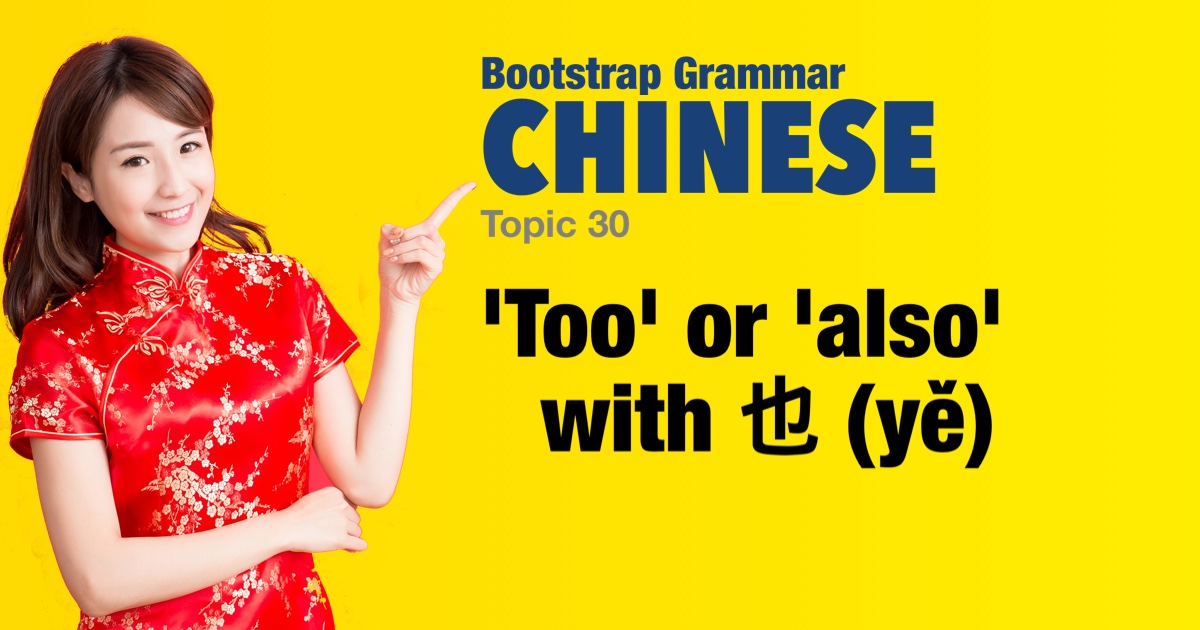Chinese grammar - 'Too' or 'also' with 也 (yě) |
|||
|
|||
The particle 也 (yě) is an adverb in Chinese that means 'also' or 'too'. It is used to indicate that the subject of the sentence shares a characteristic or action with another previously mentioned subject. It always needs to come before the verb or adjective. |
| Examples: | |
|
你也是中国人吗?
nǐ yě shì zhōngguó rén ma? Are you also Chinese?
|
|
|
面条也很好吃。
miàntiáo yě hén hǎochī. The noodles are also tasty.
|
|
|
你也有车吗?
nǐ yé yǒu chē ma? Do you also have a car? |
|
|
中国很大。俄罗斯也很大。
zhōngguó hěn dà.#éluósī yé hěn dà. China is big. Russia is also big.
|
|
|
狗在桌子下。男孩也在那里。
gǒu zài zhuōzi xià.#nánhái yě zài nàlǐ. The dog is under the table. The boy is also there.
|
|
|
我也是学生。
wǒ yě shì xuéshēng. I am also a student. |
|
|
他也吃米饭吗?
tā yě chī mǐfàn ma? Does he also eat rice? |
|
|
有苹果。也有梨。
yǒu píngguǒ.#yé yǒu lí. There are apples. There are also pears.
|
|
|
他也在图书馆看书。
tā yě zài túshūguǎn kànshū. He reads also at the library. |
|
 |
|



